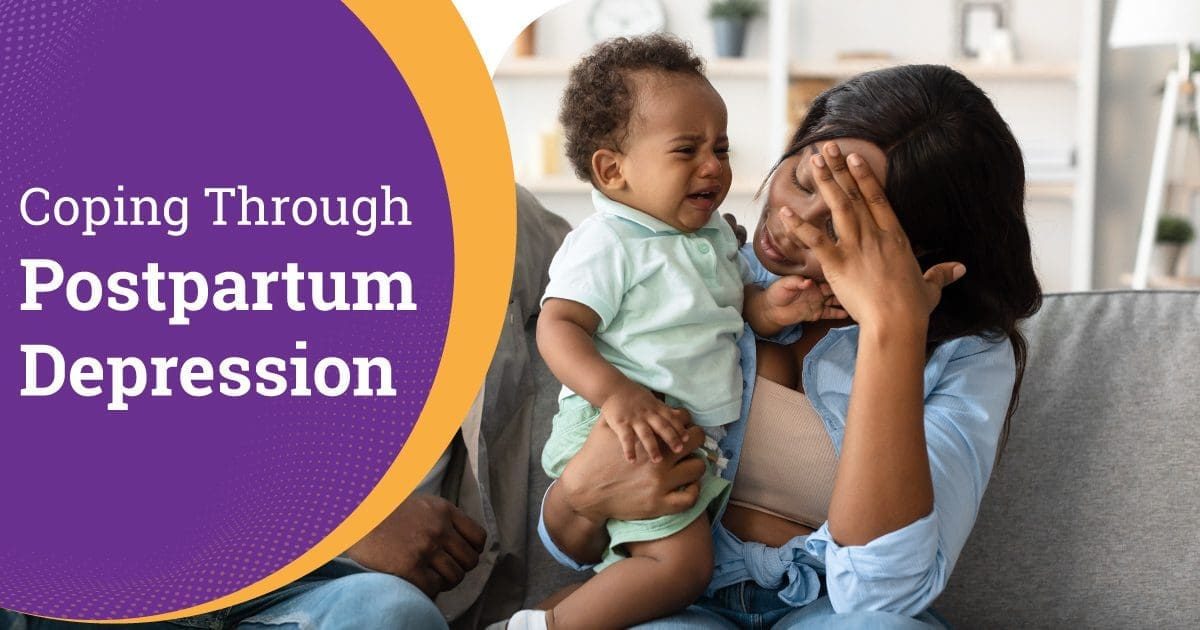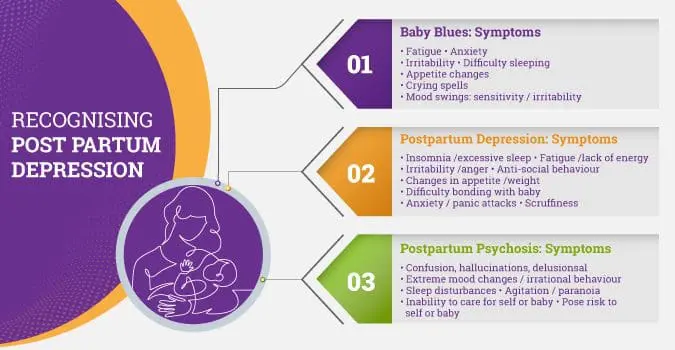Coping Through Postpartum Depression

Welcoming a new life into the world is often described as a joyous and fulfilling experience. However, for many women, the period following childbirth can be marked by feelings of sadness, anxiety, and overwhelming emotions. This phenomenon, known as postpartum depression (PPD), is still a mysterious concept, and to date, no one fully understands what triggers it.
Let’s unpack PPD, what it means, stages and symptoms to look out for, and managing measures, all in a bid to understand how we can help someone get through it.
PPD is a type of depressive disorder that occurs in some women after childbirth. It is characterized by a persistent and pervasive feeling of sadness, hopelessness, and emotional turmoil that goes beyond the typical “baby blues” that many new mothers experience. PPD can develop within the first few weeks after giving birth, but it can also emerge several months later. It’s estimated that up to 1 out of 7 women is affected by PPD.
This can be experienced in three ways:
- Baby Blues: Not classified as severe, most new moms experience postpartum “baby blues” after childbirth, which commonly include mood swings, crying spells, anxiety, and difficulty sleeping. Baby blues usually begin within the first 2 to 3 days after delivery and may last for up to two weeks.
- Postpartum Depression: Mistaken for baby blues at first, the symptoms are more intense and last longer. The symptoms usually develop within the first few weeks after giving birth. But they may begin earlier, during pregnancy, or later, up to a year after birth.
- Postpartum psychosis is a rare condition that affects up to 4 new mothers out of every 1,000 births. It usually begins in the first 2 weeks after childbirth and should be treated as a medical emergency. Women who have mental disorders, i.e., bipolar disorder or schizoaffective disorder, have a higher risk of postpartum psychosis.

While the exact cause isn’t fully understood, several contributing factors have been identified, as below:
- Hormonal Changes: After childbirth, there’s a significant drop in hormones like estrogen and progesterone. These hormonal fluctuations can affect neurotransmitters in the brain that regulate mood, potentially leading to depressive symptoms.
- Biological Factors: Changes in the brain’s structure and function during pregnancy and postpartum may play a role in PPD. These changes could impact how the brain responds to stress and influence mood.
- Genetic Predisposition: A family history of depression or other mental health disorders can increase the risk of developing PPD. Genetics may influence how an individual’s brain responds to hormonal changes and stress.
- Psychological Factors: Women with a history of depression, anxiety, or other mental health issues are more susceptible to PPD. The stress of pregnancy, childbirth, and adjusting to motherhood can trigger or exacerbate these conditions.
- Pregnancy and Birth Complications: Physical health issues, such as complications during pregnancy or childbirth, can contribute to PPD. These challenges can increase stress and impact mental well-being.
- Lack of Social Support: A strong support system is crucial during the postpartum period. Limited support from family, friends, or a partner can increase feelings of isolation and contribute to PPD.
- Body Image Concerns: Changes in body image after childbirth can impact self-esteem and contribute to depressive symptoms.
When should you seek medical or professional support for PPD?
- Symptoms persist for two weeks.
- You have thoughts of harming yourself or your newborn.
- Growing anxiety and panic attacks day in and day out.
- Finding it hard to cope with the day-to-day.
How can you help or support someone with PPD?
- Identify their symptoms and consult a professional doctor.
- Listen and understand their challenges.
- Offer to help with baby care.
- Encourage them and offer positive affirmations.
Citations:
https://my.clevelandclinic.org/health/diseases/9312-postpartum-depression
https://www.physio-pedia.com/Postnatal_Period
